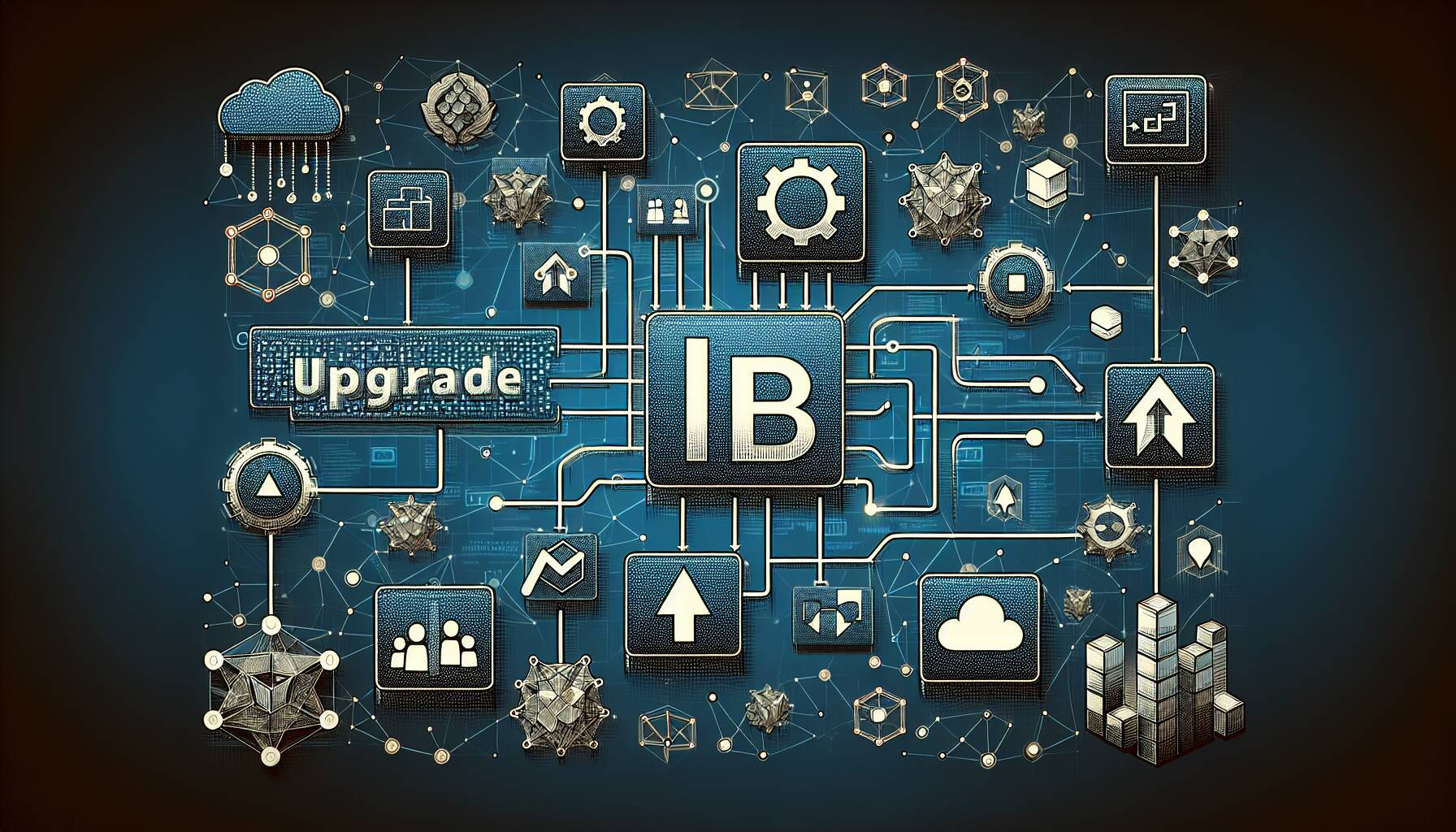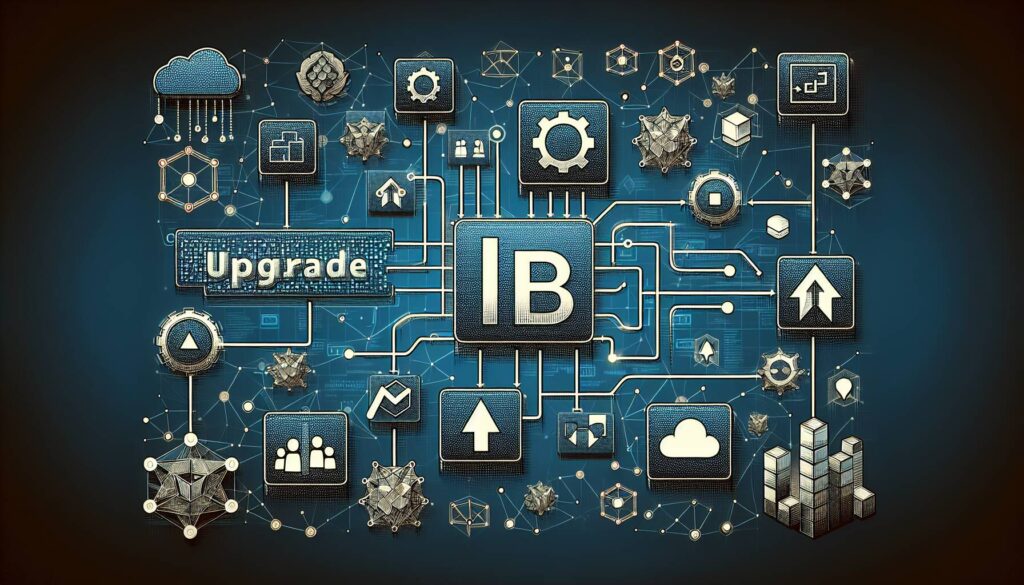In a significant leap for the Cardano blockchain, the long-awaited “Plomin” upgrade has officially been activated, marking a major milestone in its journey towards decentralized governance. Launched in 2017 by Ethereum co-founder Charles Hoskinson, Cardano has steadily developed its ecosystem, and the Plomin upgrade is a pivotal step in empowering its community. With this upgrade, ADA token holders now have a substantial role in shaping the platform’s future, including the ability to vote on treasury matters and the direction of hard forks.
The Plomin upgrade follows closely on the heels of the “Chang” hard fork, implemented just four months prior, which introduced foundational governance mechanisms. In this latest rollout, a highlight feature is the introduction of Delegate Representatives, or dReps. These representatives will act on behalf of ADA token holders, enabling a more democratic governance structure that shifts control from Cardano’s original governing bodies—the Cardano Foundation, Input Output Global (IOHK), and Emurgo—to a decentralized group of representatives.
Prior to the upgrade, Stake Pool Operators were required to update their nodes and reach a 51% approval from the network’s operators. With an impressive 85% of nodes now operating on the new version, the Cardano network successfully embraced these changes. Looking ahead, the Cardano community is already in discussions about further enhancements. According to Giorgio Zinetti, CTO of the Cardano Foundation, efforts are focused on making Cardano faster, enhancing privacy features, and increasing utility for developers, all driven by the community’s needs and desires.
“In short, we want to make Cardano faster, we want to add some privacy preserving features and we want to add more utility for developers,” said Giorgio Zinetti, CTO of the Cardano Foundation.
The evolution of Cardano’s governance marks an exciting time for its ecosystem, and as it continues to grow, the influence of its community will play an increasingly pivotal role in shaping its path forward.

Cardano’s Plomin Upgrade: A Shift Towards Decentralized Governance
The recent activation of the Plomin upgrade on the Cardano blockchain marks a significant milestone in its governance and community engagement. Here are the key points related to this development:
- Launch of Plomin Upgrade:
- Activated on Wednesday, marking a move towards decentralized governance.
- Follows the “Chang” hard fork that laid the groundwork for this upgrade.
- Empowerment of ADA Token Holders:
- Token holders can now participate in shaping Cardano’s future including voting on treasury measures and hard forks.
- The governance structure shifts from three founding entities to community-led groups.
- Introduction of Delegate Representatives (dReps):
- dReps will represent the interests of ADA token holders in governance decisions.
- This change allows for a more democratic approach to blockchain management.
- Community-Driven Development:
- Future development aims to enhance speed, privacy, and utility for developers.
- Community feedback will play a vital role in shaping upcoming features.
- Current Network Status:
- About 85% of nodes have upgraded, allowing the network to move forward with the changes.
- Stake Pool Operators’ approval was crucial for implementing the upgrade.
“In short, we want to make Cardano faster, we want to add some privacy preserving features and we want to add more utility for developers,” said Giorgio Zinetti, CTO of the Cardano Foundation.
This upgrade has profound implications for ADA token holders, allowing them a direct voice in governance processes. By participating in decisions related to upgrades and treasury usage, holders can influence the evolution of the Cardano ecosystem, potentially impacting the value and utility of their investments. Furthermore, as the community advocates for enhancements, the developments could foster a more dynamic and user-oriented blockchain environment, ultimately benefiting all stakeholders involved.
Cardano’s Plomin Upgrade: A Leap Towards Decentralized Governance
Cardano’s recent “Plomin” upgrade marks a significant step in transforming the blockchain’s governance structure. By granting ADA token holders the power to influence decisions, including treasury management and potential hard forks, Cardano is transitioning from its historically centralized model to one where community voices resonate louder. This shift stands in stark contrast to competitors like Ethereum, which, despite its own moves towards decentralization, still showcases elements of central control through its development team and key stakeholder influence.
Competitive Advantages: Cardano’s decision to implement Delegate Representatives (dReps) empowers everyday token holders, potentially creating a more democratized ecosystem. Unlike platforms that rely heavily on centralized authority, Cardano’s new governance model is designed to put power in the hands of users, fostering a deeper sense of community involvement. Furthermore, with around 85% of nodes seamlessly aligning with the upgrade, it demonstrates robust network support and readiness for progressive changes.
Disadvantages: However, this decentralized governance model is not without its pitfalls. The introduction of dReps means that decisions could be swayed by platforms or individuals with vested interests, potentially jeopardizing the system’s integrity. Additionally, the complexity of the voting process may discourage participation among less technically savvy token holders, thus favoring those more familiar with blockchain governance.
As Cardano moves forward, this upgrade could significantly benefit investors seeking a more transparent and participative blockchain model. It opens the door for new stakeholders to engage, appealing particularly to those who prioritize community-driven projects. Conversely, traditional investors accustomed to more centralized governance might find difficulties adjusting to a system where their influence is diluted.
Moreover, the Plomin upgrade could present challenges for projects that rely on established centralized systems, as Cardano’s shift might inspire users to expect similar governance structures elsewhere. This could potentially erode trust in platforms that do not adopt similar progressive measures or adapt to community-oriented governance trends in an increasingly competitive crypto landscape.















